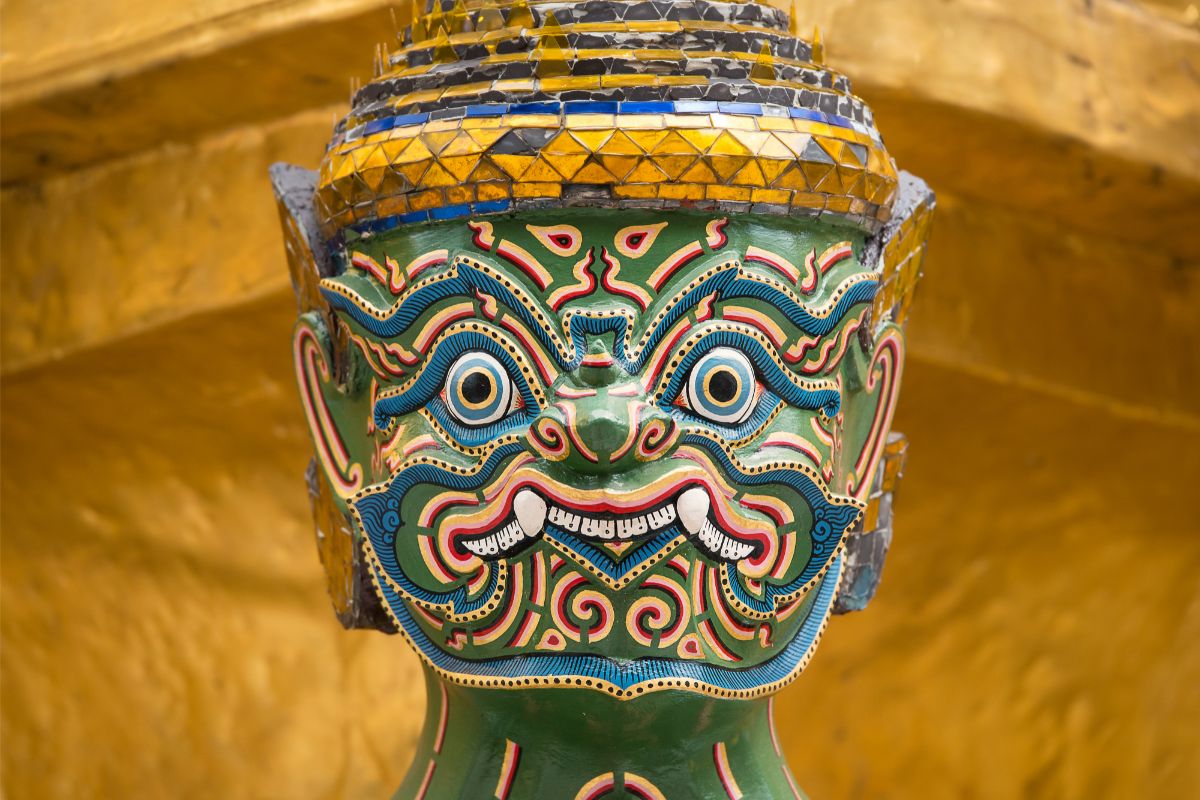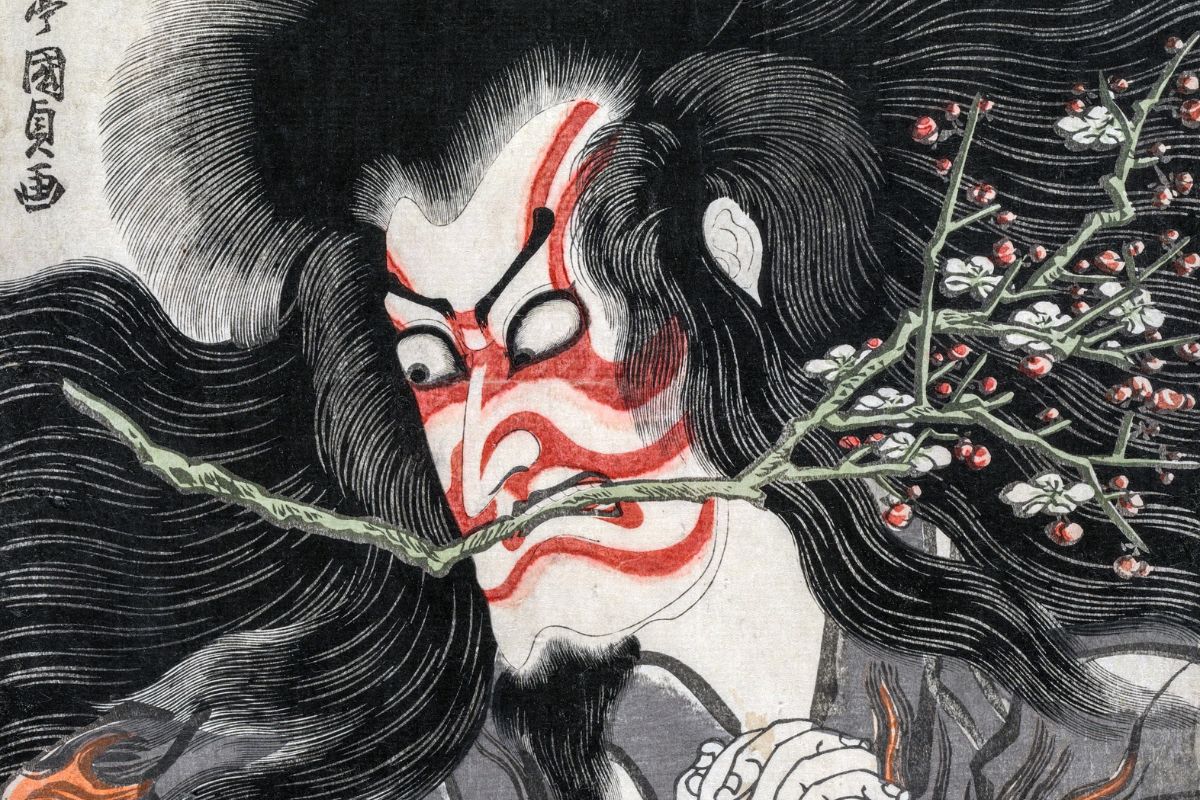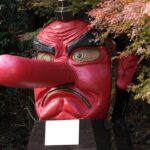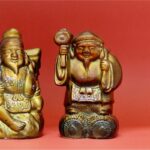One of the most well-known parts of Japanese folklore is the yokai. Yokai come in all kinds of shapes and classes but they are usually depicted as evil or mischievous.
Are all yokai mean, or are there any friendly yokai who are harmless to humans?

Here, we are going to be taking a look at yokai to discover if there are any yokai who are kind and friendly to humans. This way, you can learn more about yokai and how much the class varies.
What Are Yokai?
First, let’s take a look at what a yokai actually is.
Yokai is a class of entities and spirits found in Japanese folklore. They are strange creatures which vary in appearance and behavior.
The word ‘yokai’ itself translates to mean monster, demon, goblin, or spirit in English – and a yokai embodies this and more.
Yokai are like the ghosts and deities equivalent in Japanese folklore. The term is very broad and yokai can range from ghosts, living objects, gods, urban legends, and more.
As a result, it is tricky to translate yokai into other languages and often just remains as ‘yokai’.
Despite yokai being so broad in terms of behavior, most people naturally assume them to be evil creatures. Some yokai appear in tales involving cannibalism, kidnappings, trickery, and other evil deeds.
For example, the kappa is an aquatic yokai which will drown those who come too close.
So, most people view yokai as evil creatures from Japanese folklore – but is this entirely true?
Are There Friendly Yokai?
Yes, there are definitely friendly yokai out there in Japanese folklore.
Although a lot of yokai are mischievous or troublesome in some way, there are a few times when Japanese folklore describes friendly yokai or events when yokai help humans in some way.
Here are some examples of friendly yokai for you to learn about!
Shojo
Shojo is a yokai often described as ‘the Drunken Ape’. They are a type of sea spirit with the appearance of a man. They have red hair and skin, and an unfortunate fondness for alcohol. As a sea spirit, they live along the coast of Japan.
Japanese folklore describes the Shojo as friendly and curious. They brew wine from the sea and offer it to people passing by.
According to Japanese folklore, this wine should taste delicious to people who are pure of heart. Mischievous pranksters will find the wine to be bitter.
As a result, Shojo are harmless yokai who just want to share a drink with a companion!
Baku
Another friendly yokai you may have heard of is Baku. Baku is a very strange beastly yokai that feasts on nightmares and bad dreams.
This means that despite its monstrous appearance, a baku is actually the kind of yokai you would like to have around. This is especially true if you want a good night’s sleep!
Baku are perfectly harmless to humans. In myths and folktales, baku help humans by appearing during restless nights to eat their nightmares. This allows the humans to sleep peacefully.
If someone was having trouble sleeping, they would call on a baku for help.
So, bakus are some of the most beloved yokai in Japanese folklore.
Zashiki-warashi
Zashiki-warashi are a type of house yokai that go by many different names, including zashiki bokko. According to Japanese folklore, they inhabit the parlors or storage rooms of homes and buildings.
They appear in the form of a small child and have a penchant for mischief.
Despite their love of tricks and pranks, zashiki-warashi are actually harmless. Having a zashiki-warashi is a sign of fortune and good luck. So this is definitely a yokai you would love to have around your home.
Due to their youthful appearance, zashiki-warashi also likes to play with children and befriend them. Some tales mention times when parents could their children and accidentally count one extra. This is the zashiki-warashi.
There are folk tales which talk of bad things happening to families when their zashiki-warashi leave their home. However, this is not the zashiki-warashi’s fault; they leave because they can sense the bad fortune coming.
A zashiki-warashi can also leave a home if they feel unwanted or disrespected. So families would leave out desserts and treats to try and convince a zashiki-warashi to stay.
So, zashiki-warashi are a type of friendly yokai who bring fortune and protection to their homes and the families who live there.

Kitsune
One of the most well known yokai outside of Japan is the kitsune. They are shape shifting foxes which can take on the appearance of a human (see also ‘What Is A Half Human Half Fox Called? – Japanese Spirits 101‘).
Although they can carry out tricks on humans, most kitsunes act as guardians and friends in Japanese folklore.
Kitsune are very respected in Japanese folklore and are very intelligent. They have long lives, magical powers, and strange features like having nine tails instead of just one.
In folktales, kitsune protect humans and ward away evil spirits. As a result, kitsunes are a sign of good luck in Japanese culture.
Inugami
In areas of Japan where foxes are not very common, folktales talk of a yokai called the inugami (see also ‘What Is The 9-Tailed Fox Called? – Famous Yōkai Explained‘). The inugami are dog-like yokai who embody a lot of similar traits of the kitsune.
They are loyal yokai who act like dogs to their families and live around human homes. As a result, having an inugami in your home is like having a ghost dog.
Inugami have the power to possess people and turn them animalistic. Despite this, a lot of families did everything they could to keep their inugami around.
This is because they brought wealth and prosperity and protection to the family. Inugami remain loyal forever unless mistreated.
Amabie
The amabie are Japan’s answers to mermaids in yokai form. They have beaks like birds and multiple legs, and live underneath the sea. In Japanese folktales, the amabie would emerge from the sea to give prophecies – both good and bad.
So, the amabie are a friendly kind of yokai who would give warnings of oncoming plagues or abundant harvests. Amabie would also help humans ward off things like sickness and war by giving advice.
Kappa – Well, Sometimes
You are probably thinking – wait, did you say earlier that kappa drown people?
Yes, that is true but the thing is, some kappas are nice and others are not. There are folktales where kappa play horrible tricks on humans, or kidnap their children, or murder them.
However, there are also folktales which describe the kappa as very friendly and helpful to humans.
Some kappa have brought humans fresh fish, others have helped farmers irrigate their farmland. Some kappa save people from drowning rather than be the ones trying to drown them.
Other tales say that kappa have taught humans medicine.
So, maybe kappa is not all that bad!
Final Thoughts
There are tons of different types of yokai out there. Although yokai are often depicted as cruel or evil in different media, there are still friendly types of yokai too.
Some bring good fortune to those who see it, others help humans by warning them of danger or saving them from trouble.
However, most yokai love to play tricks – but how harmful these tricks are varies from case to case. So, even though some yokai may be tricksters, this does not mean that they cannot be friendly with humans.
Check out the list of friendly yokai above to find out more!
- How Much Money Can You Make Teaching English in Japan? - December 12, 2022
- The Best Places to Teach English in Japan - December 9, 2022
- The Best Credentials for Teaching English in Japan - December 8, 2022








